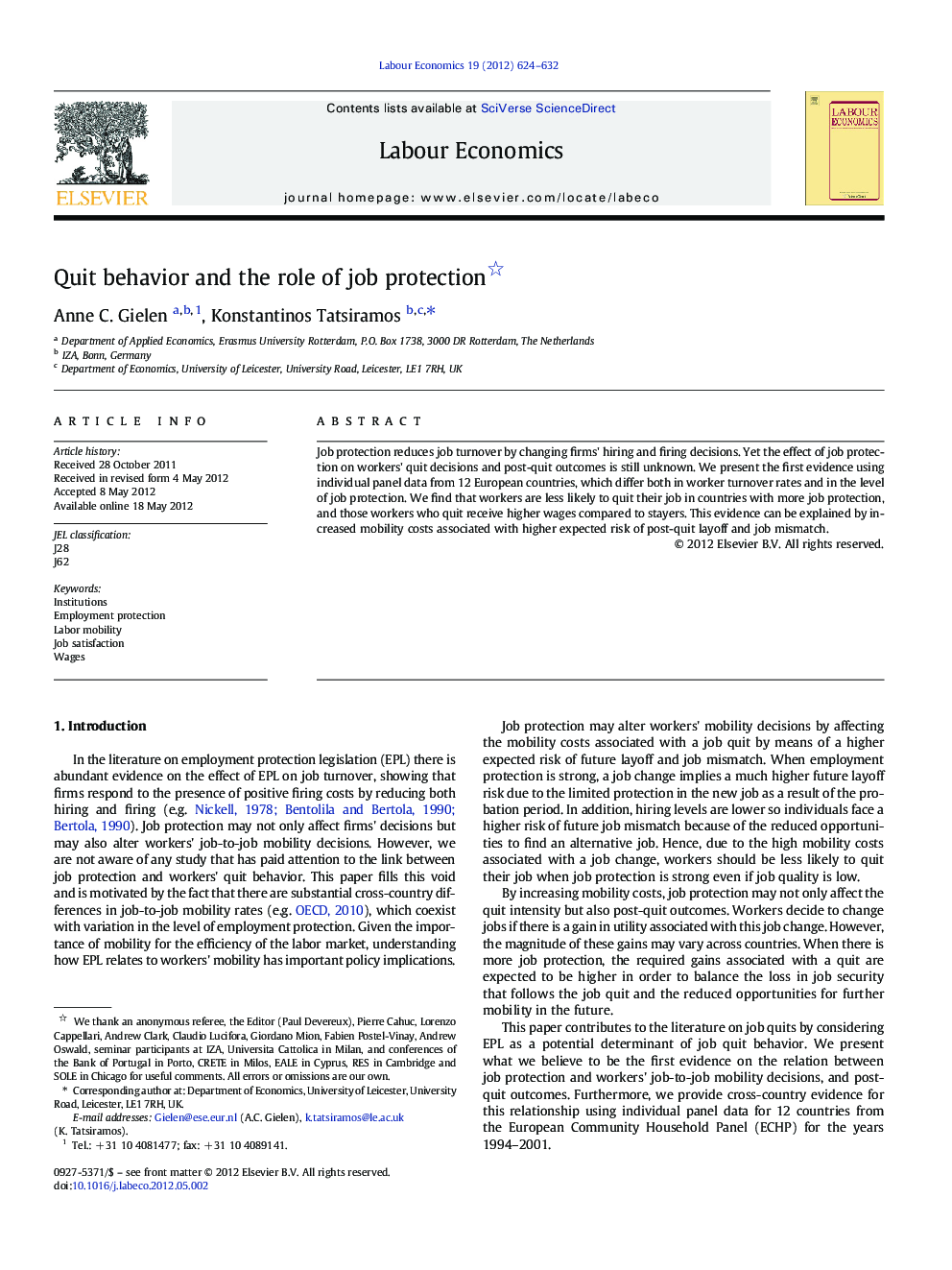| Article ID | Journal | Published Year | Pages | File Type |
|---|---|---|---|---|
| 972745 | Labour Economics | 2012 | 9 Pages |
Job protection reduces job turnover by changing firms' hiring and firing decisions. Yet the effect of job protection on workers' quit decisions and post-quit outcomes is still unknown. We present the first evidence using individual panel data from 12 European countries, which differ both in worker turnover rates and in the level of job protection. We find that workers are less likely to quit their job in countries with more job protection, and those workers who quit receive higher wages compared to stayers. This evidence can be explained by increased mobility costs associated with higher expected risk of post-quit layoff and job mismatch.
► Low levels of job satisfaction (JS) induce job quits. ► Effects of JS on quits vary across countries by the level of job protection. ► There is a negative relationship between job protection and quits. ► Workers who quit in countries with stronger job protection receive higher wages.
